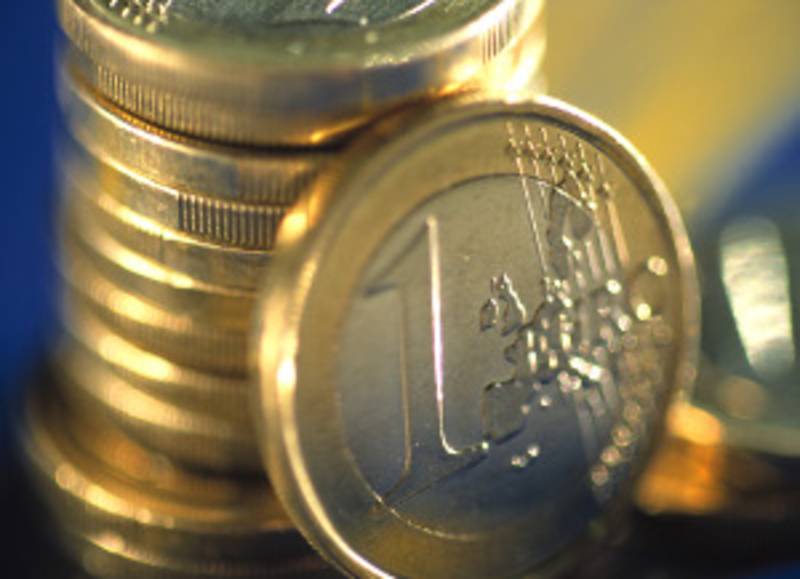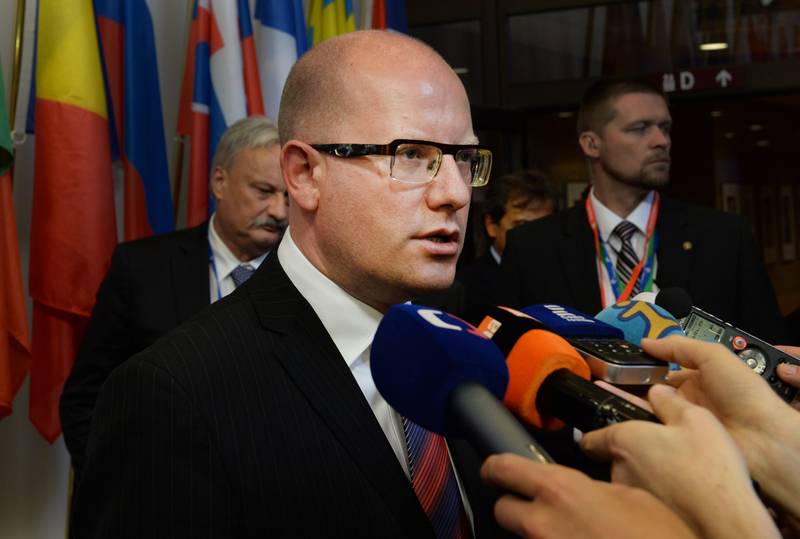Euro Area vs. the Rest
Adelina Marini, October 14, 2015
 The future of the euro area is not a debate that is easy to push, but European Council President Donald Tusk is set on squeezing in the subject onto the agenda of the October EU summit, which will commence in the afternoon of October 15th. This was stated by a high-placed EU source. In the invitation letter that he sent to the leaders of the 28 EU member states Donald Tusk places the discussion of what work is being done on the five presidents’ report, that was presented in June, after the hot topic of the refugee and migrant crisis, after the discussion of the situation surrounding the planned referendum in Great Britain on its EU membership, and after President of France François Hollande acquaints his colleagues with the preparations for the climate COP21 conference in Paris at the end of the year.
The future of the euro area is not a debate that is easy to push, but European Council President Donald Tusk is set on squeezing in the subject onto the agenda of the October EU summit, which will commence in the afternoon of October 15th. This was stated by a high-placed EU source. In the invitation letter that he sent to the leaders of the 28 EU member states Donald Tusk places the discussion of what work is being done on the five presidents’ report, that was presented in June, after the hot topic of the refugee and migrant crisis, after the discussion of the situation surrounding the planned referendum in Great Britain on its EU membership, and after President of France François Hollande acquaints his colleagues with the preparations for the climate COP21 conference in Paris at the end of the year.
The EU source said that, at the moment, there is a dilemma regarding the euro area, for Mr Tusk wishes to keep the discussion alive, to stimulate debate, and to open some space for the next step, but this is far from easy. If all requests are met in the debate on the future of the euro area then in the conclusions of the summit will remain not more than a single sentence, which would probably say something about how important it is to continue to develop the euro area, thinks the source. In the draft conclusions that are available to euinside, the subject of the future of the euro area is spread out in two full sentences in article 6 under the heading “Other items”. It says that the European Council has taken into account the way the discussions are going on the presidents’ report on the completion of the Economic and Monetary Union (EMU) and underlines the urgency of the completion of the banking union. The leaders are committing to come back to this issue during their final annual meeting in December.
Donald Tusk is hard set on attempting once more to fit the two-day European Council in a single day, which means compressing again a sizable agenda in only a few hours of discussions. His plans, however, might get foiled for it is expected that the question of the separation of states within the euro area and those outside it will be raised during the summit. The topic was extremely hot last week when for the first time in history the ministers of Labour and Social Policy of the euro area met prior to the regular meeting of the Employment, Social Policy, Health and Consumer Affairs (EPSCO) Council. As euinside reported, this enraged the non-euro states. All nine non-euro states have signed a letter, at Denmark’s initiative, in which they express their concern with the fact that debates are being organised in an exclusively “euro area” format.
“We feel that the institutionalising of such a meeting is counter-productive to our efforts, which are to keep unified and keep strong the common market as well as equal treatment of states outside the euro area. We fully support the position that it is of the common interest that all 28 states be included and discuss the issues presented”, said the Bulgarian Deputy Prime Minister Meglena Kuneva before the General Affairs Council on Tuesday, during which the programme of the European Council for this week was prepared. “I do not expect that this issue will be raised during the summit”, said a high-ranking EU source. At this stage the subject has not surfaced during the preparation for the summit, he added. It came to euinside’s knowledge that Czech Prime Minister  Bohuslav Sobotka intends to raise the issue. This was confirmed by the Permanent Representation of the Czech Republic in Brussels.
Bohuslav Sobotka intends to raise the issue. This was confirmed by the Permanent Representation of the Czech Republic in Brussels.
The problem is not just that there was a single meeting in this unusual format, but that more such meetings are being planned. According to a well-informed source, The Netherlands, which is due to take over the rotating presidency of the Council on January 1st, plans to conduct several more meetings in this format and broaden it. Apart from the ones of the ministers of Social Affairs of the euro area, there are meetings planned between the ministers of Transport of the states that share the common European currency. The Dutch Permanent Representation denied any such meetings are planned and stated that they do not appear on the Presidency’s calendar, which is already made public. euinside’s source, however, is certain that such meetings are being discussed.
The Luxembourg Presidency, too, sees no problem in conducting such formats and even announced it will not surrender on the attempts to institutionalise them. A high-profile European source underestimated the drama in saying that too much attention is being paid to who meets in which room and for what. The summit commences in the early Thursday afternoon. Donald Tusk’s plans are for it to finish that same day. His team is optimistic that this is possible.
Translated by Stanimir Stoev
 Angela Merkel, Emmanuel Macron | © Council of the EU
Angela Merkel, Emmanuel Macron | © Council of the EU Benoit Coeure | © Council of the EU
Benoit Coeure | © Council of the EU Pierre Moscovici | © Council of the EU
Pierre Moscovici | © Council of the EU